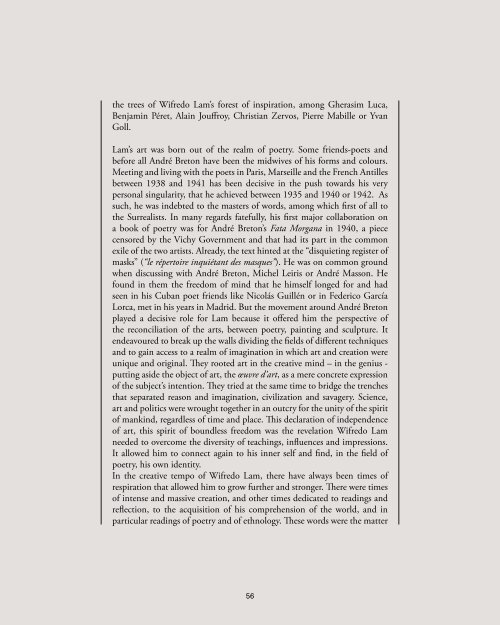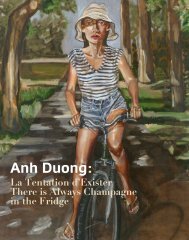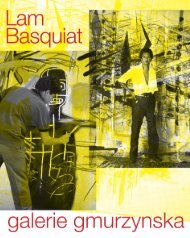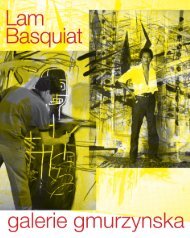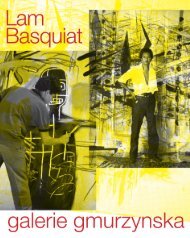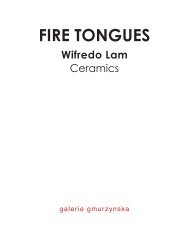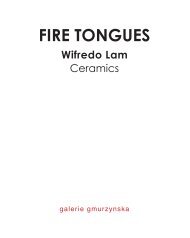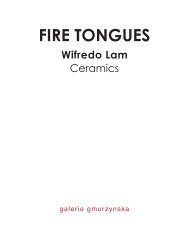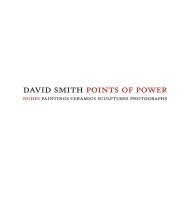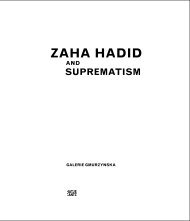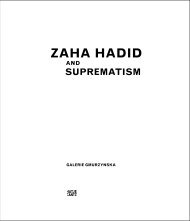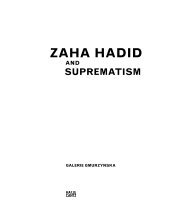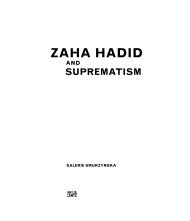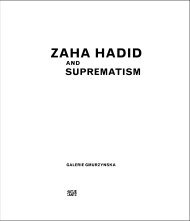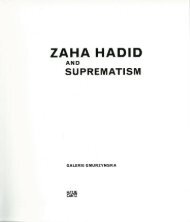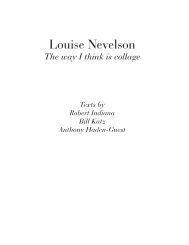Dominique de Villepin – The fraternity of sorcerers: Wifredo Lam and the poets
Excerpt from the book “Wifredo Lam – Nouveau Nouveau Monde”, a fully illustrated catalogue published in English on the occasion of the eponymous special exhibition.
Excerpt from the book “Wifredo Lam – Nouveau Nouveau Monde”, a fully illustrated catalogue published in English on the occasion of the eponymous special exhibition.
You also want an ePaper? Increase the reach of your titles
YUMPU automatically turns print PDFs into web optimized ePapers that Google loves.
<strong>the</strong> trees <strong>of</strong> <strong>Wifredo</strong> <strong>Lam</strong>’s forest <strong>of</strong> inspiration, among Gherasim Luca,<br />
Benjamin Péret, Alain Jouffroy, Christian Zervos, Pierre Mabille or Yvan<br />
Goll.<br />
<strong>Lam</strong>’s art was born out <strong>of</strong> <strong>the</strong> realm <strong>of</strong> poetry. Some friends-<strong>poets</strong> <strong>and</strong><br />
before all André Breton have been <strong>the</strong> midwives <strong>of</strong> his forms <strong>and</strong> colours.<br />
Meeting <strong>and</strong> living with <strong>the</strong> <strong>poets</strong> in Paris, Marseille <strong>and</strong> <strong>the</strong> French Antilles<br />
between 1938 <strong>and</strong> 1941 has been <strong>de</strong>cisive in <strong>the</strong> push towards his very<br />
personal singularity, that he achieved between 1935 <strong>and</strong> 1940 or 1942. As<br />
such, he was in<strong>de</strong>bted to <strong>the</strong> masters <strong>of</strong> words, among which first <strong>of</strong> all to<br />
<strong>the</strong> Surrealists. In many regards fatefully, his first major collaboration on<br />
a book <strong>of</strong> poetry was for André Breton’s Fata Morgana in 1940, a piece<br />
censored by <strong>the</strong> Vichy Government <strong>and</strong> that had its part in <strong>the</strong> common<br />
exile <strong>of</strong> <strong>the</strong> two artists. Already, <strong>the</strong> text hinted at <strong>the</strong> “disquieting register <strong>of</strong><br />
masks” (“le répertoire inquiétant <strong>de</strong>s masques”). He was on common ground<br />
when discussing with André Breton, Michel Leiris or André Masson. He<br />
found in <strong>the</strong>m <strong>the</strong> freedom <strong>of</strong> mind that he himself longed for <strong>and</strong> had<br />
seen in his Cuban poet friends like Nicolás Guillén or in Fe<strong>de</strong>rico García<br />
Lorca, met in his years in Madrid. But <strong>the</strong> movement around André Breton<br />
played a <strong>de</strong>cisive role for <strong>Lam</strong> because it <strong>of</strong>fered him <strong>the</strong> perspective <strong>of</strong><br />
<strong>the</strong> reconciliation <strong>of</strong> <strong>the</strong> arts, between poetry, painting <strong>and</strong> sculpture. It<br />
en<strong>de</strong>avoured to break up <strong>the</strong> walls dividing <strong>the</strong> fields <strong>of</strong> different techniques<br />
<strong>and</strong> to gain access to a realm <strong>of</strong> imagination in which art <strong>and</strong> creation were<br />
unique <strong>and</strong> original. They rooted art in <strong>the</strong> creative mind – in <strong>the</strong> genius -<br />
putting asi<strong>de</strong> <strong>the</strong> object <strong>of</strong> art, <strong>the</strong> œuvre d’art, as a mere concrete expression<br />
<strong>of</strong> <strong>the</strong> subject’s intention. They tried at <strong>the</strong> same time to bridge <strong>the</strong> trenches<br />
that separated reason <strong>and</strong> imagination, civilization <strong>and</strong> savagery. Science,<br />
art <strong>and</strong> politics were wrought toge<strong>the</strong>r in an outcry for <strong>the</strong> unity <strong>of</strong> <strong>the</strong> spirit<br />
<strong>of</strong> mankind, regardless <strong>of</strong> time <strong>and</strong> place. This <strong>de</strong>claration <strong>of</strong> in<strong>de</strong>pen<strong>de</strong>nce<br />
<strong>of</strong> art, this spirit <strong>of</strong> boundless freedom was <strong>the</strong> revelation <strong>Wifredo</strong> <strong>Lam</strong><br />
nee<strong>de</strong>d to overcome <strong>the</strong> diversity <strong>of</strong> teachings, influences <strong>and</strong> impressions.<br />
It allowed him to connect again to his inner self <strong>and</strong> find, in <strong>the</strong> field <strong>of</strong><br />
poetry, his own i<strong>de</strong>ntity.<br />
In <strong>the</strong> creative tempo <strong>of</strong> <strong>Wifredo</strong> <strong>Lam</strong>, <strong>the</strong>re have always been times <strong>of</strong><br />
respiration that allowed him to grow fur<strong>the</strong>r <strong>and</strong> stronger. There were times<br />
<strong>of</strong> intense <strong>and</strong> massive creation, <strong>and</strong> o<strong>the</strong>r times <strong>de</strong>dicated to readings <strong>and</strong><br />
reflection, to <strong>the</strong> acquisition <strong>of</strong> his comprehension <strong>of</strong> <strong>the</strong> world, <strong>and</strong> in<br />
particular readings <strong>of</strong> poetry <strong>and</strong> <strong>of</strong> ethnology. These words were <strong>the</strong> matter<br />
56


